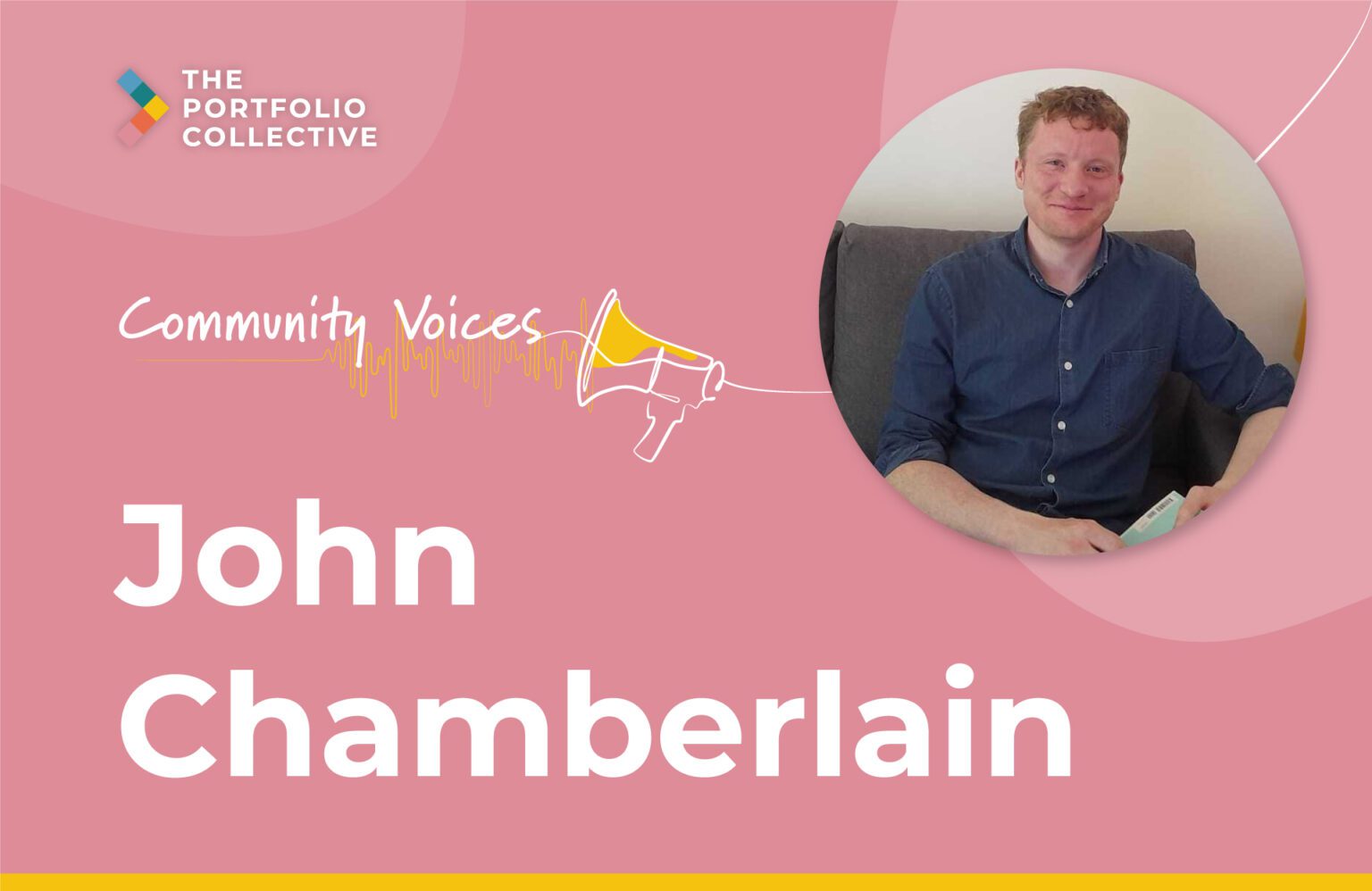TPC Team
When John Chamberlain left university, he had no plans to start a portfolio career. In fact, he didn’t even know that was an option. He was passionate about illustration and he wanted to tell stories, so he explored different career paths that let him combine those values.
As his career evolved, he approached every opportunity with a curious spirit, opening the door to some unexpected projects. That resulted in a varied and purpose-driven career as an illustrator, teacher and storyteller.
John’s story is defined by a persistent curiosity that led him down some surprising professional paths, often sparked by casual conversations and chance encounters. We sat down with John to find out more about his experiences as a portfolio professional in a creative industry and learn how informal networking has shaped his career.
Hi John, we’d love to hear about your journey and how you got where you are today. Can you tell us a bit about your background?
I have an illustration background. I completed my undergrad at Edinburgh College of Art in 2008 and then went on to work in education and on various miscellaneous art projects. After three years as a support worker in my local college, I enrolled in a Master’s course at Cambridge School of Art, which was an MA in Illustration and Book Arts. The style of my works is hand drawn or painted, primarily.
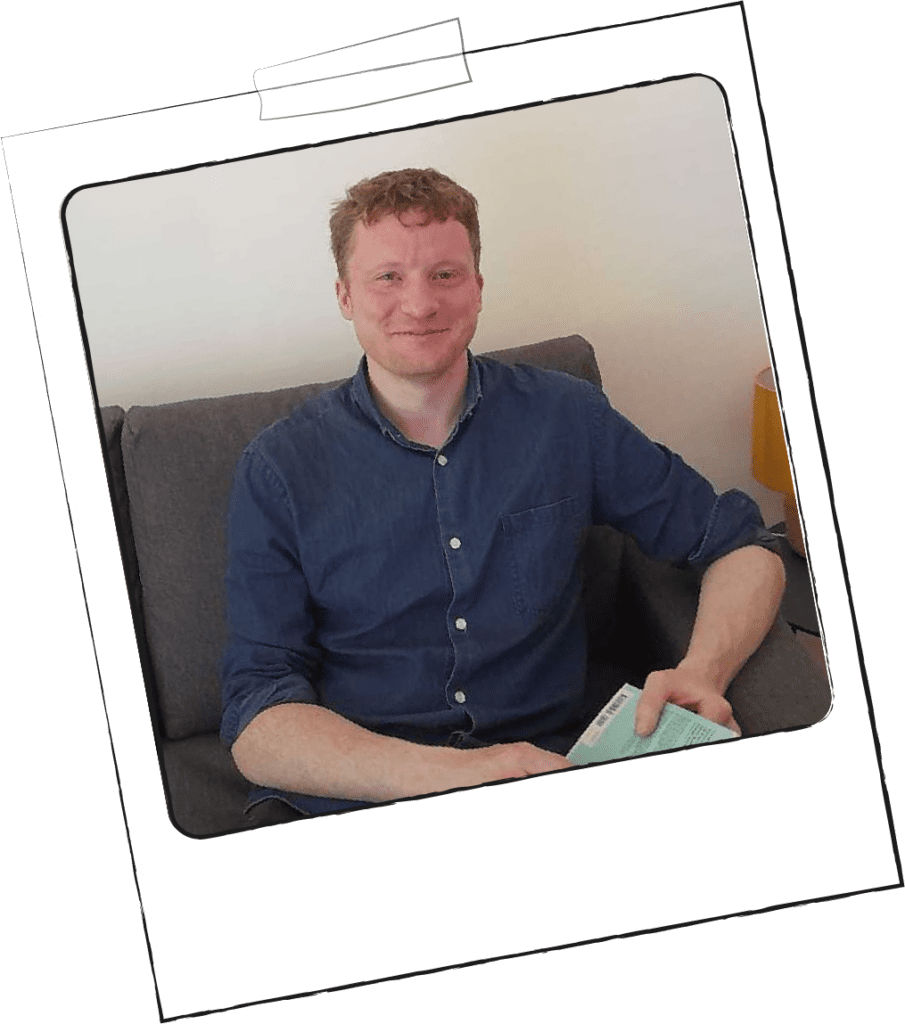
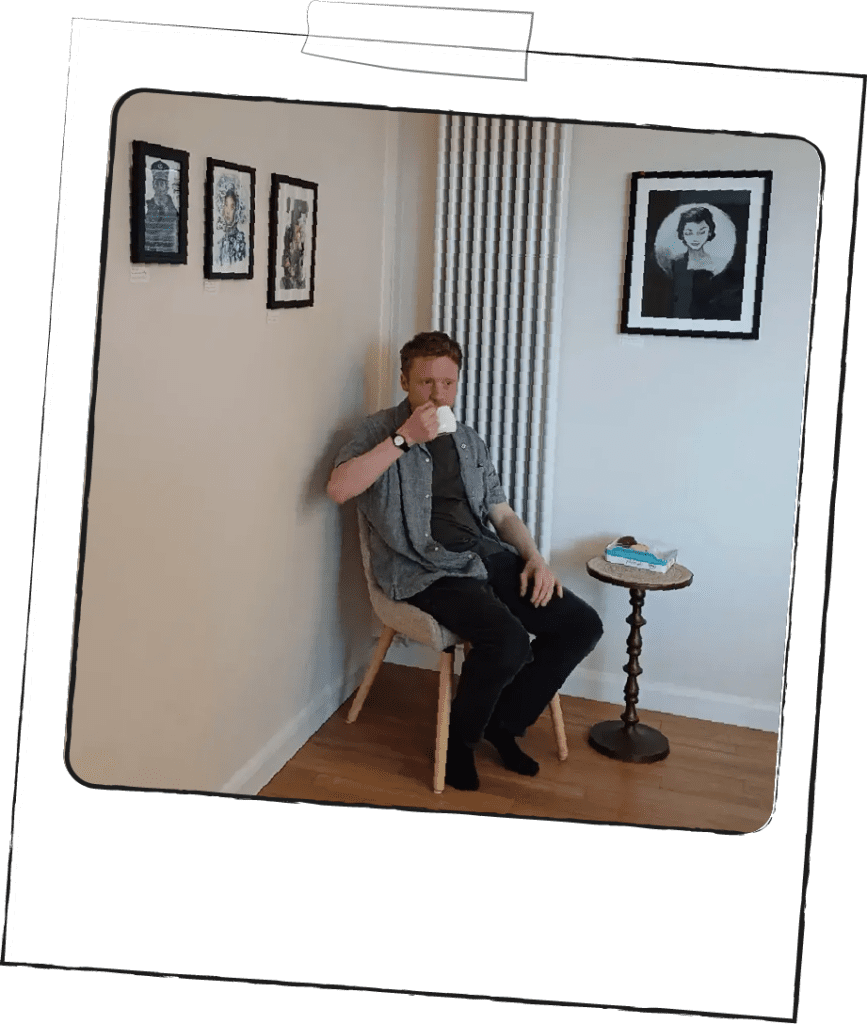
Since finishing your education, you’ve built a rich portfolio career in a creative industry. Is this something you always intended to do post-university? Or did you even know what a portfolio career was when you started one?
No, not at all. I only came across the term ‘portfolio career’ when I found The Portfolio Collective community, and that made me realise you could have different things that you’re doing that are equally valid. I always saw illustration as the thing I really want to do and, by extension, the most important. But I learned there are actually other areas of work I was passionate about that could be just as important.
I’ve run or assisted independent art workshops in schools, community groups and mental health recovery groups. I’ve painted theatre sets and illustrated album art. I’ve taught everything from BA to Level 3 Art and Design. I’ve also taught adult learners painting and drawing. I’ve even done a little bit of article writing in the past.
I know you do a bit of museum work as well. How does that fit into your portfolio career?
That’s mainly in the education department. I do everything from school workshops to sketchbook classes for adults on open Heritage days. In the past, I’ve done Tudor workshops around an old house, environment workshops in a park and informal, nature-themed craft workshops. I even ran one with VR headsets on an ancient Egyptian theme. I really enjoy it; it’s quite varied and interactive.
So what would you say is the overarching theme that connects all these different threads of your career?
There’s definitely something about putting across information and thinking about different audiences. I’ve had to run or assist workshops with so many different age groups, and you have to quickly suss that out and adapt. It’s the same process with illustration. You think about your audience and figure out the best way to communicate a story visually.
Language, interaction and communication are the three biggest values for me – the concept of telling a story runs through everything I do.
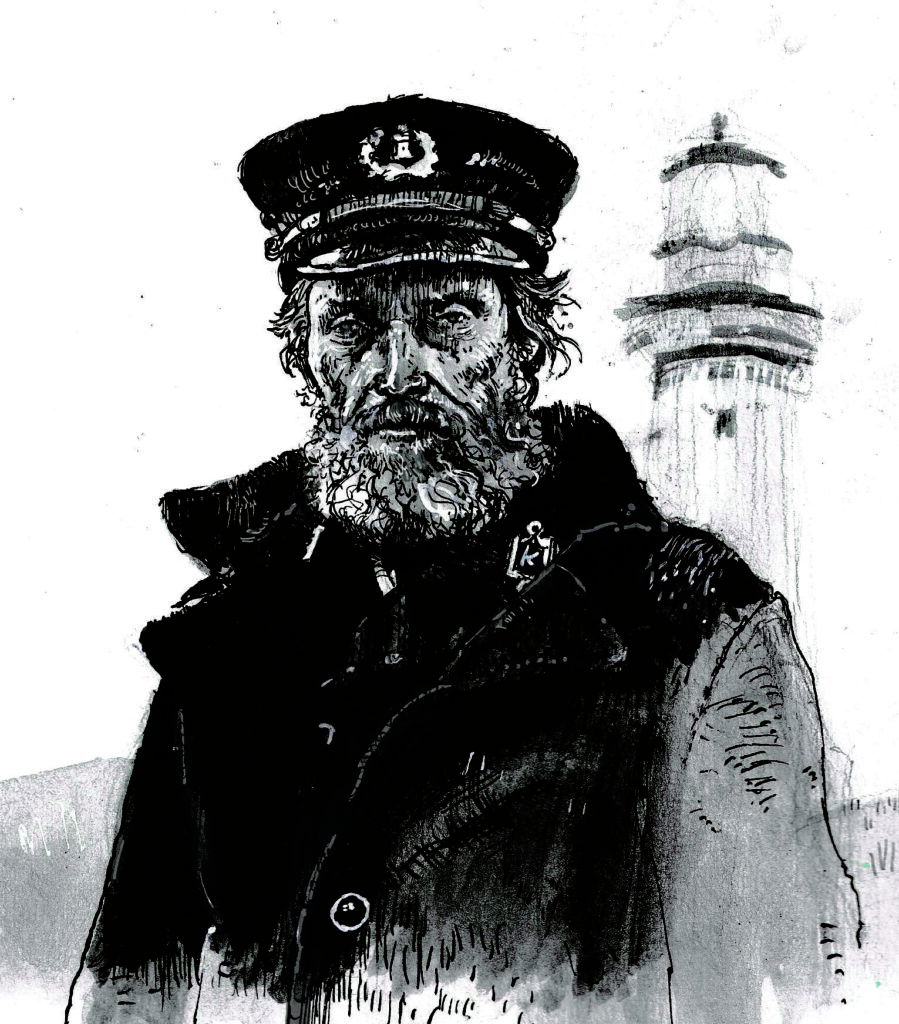
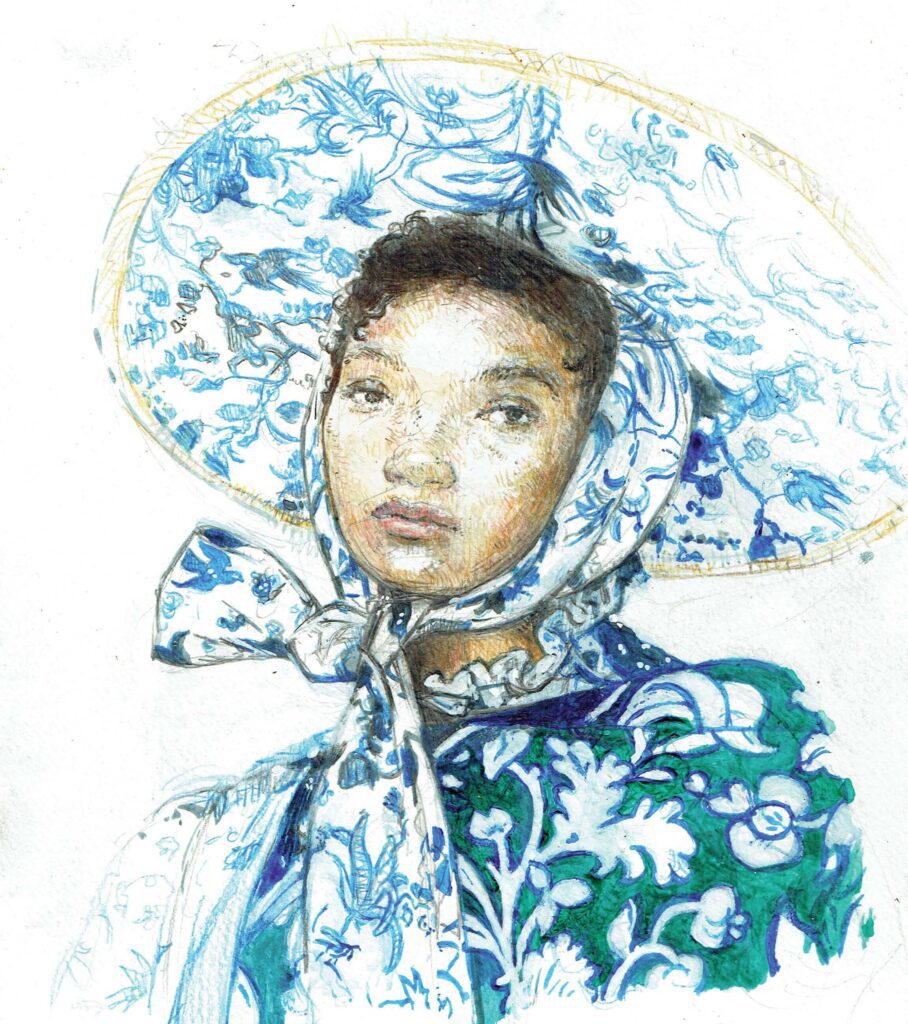
© John Chamberlain
I know that networking has played a big part in your career. How have the relationships you built through your life offered new opportunities that you didn't expect?
It was only a few years after graduating from my BA that I really understood the concept of networking. But it’s been more about networking without realising it, meaning casual conversations without any prior ideas or motives that have led to things.
Years ago, I was interning in York and I got involved in a theatre production. I was an illustration intern, but because I was sketching a lot of the plays and writing reviews, I accidentally slipped into a production. That led to a lot of informal networking.
We’d go to the pub after rehearsals and I chatted with the dance instructor from the play, whose sister was the year below me at Edinburgh College of Art. It didn’t take long to learn she was actually a storyteller, and off the back of those casual conversations, she got me a week’s work as an Artist in Residence at a children’s festival. At the end of it, she said, “I’ve written these stories. You’ve got these ideas for children’s book illustrations. We should work together again. I’ll write and you’ll illustrate.” This was 12 years ago.
She travelled all over, then moved back to the west coast of Scotland. Then she contacted me at the beginning of this summer, letting me know she’d written 12 stories for North Lanarkshire Council from 12 different historical time periods. There would be a number of different metal waymarkers with QR codes you could scan to get the stories and she needed someone to illustrate them. She’d seen the way my work had developed over the years on social media and was keen to recommend me to the council. They really liked my style – so a flash-in-the-pan week-long job from 12 years earlier at the Theatre Royal led to some very substantial work this summer that pushed me in the direction I wanted to go in.
There’s definitely something to be said about how networking doesn’t have to always be so here-and-now - the people we’ve worked with before can create new opportunities for us.
Yes, and I think it’s about trying different networking as well. I found that earlier this year when I did an art fair in Manchester, which was totally outside of my area, and I met a whole new set of people. Having that different perspective and meeting new people can be really refreshing.
I could have easily dismissed doing that internship 12 years ago because it was unpaid, but it ended up being incredibly helpful and shifting the direction of my career. It’s so important to be open to new experiences, new conversations and new people – and just be generally curious.
The work I did this summer – following on from work 12 years ago – is the pattern of my work since 2019. It’s people contacting me who I briefly worked with on small projects who recommend me for something or want to work with me again. I’ve found that to be really encouraging. Sometimes networking is about the slow burn.

That’s one of the benefits of having a portfolio career - there are so many surprising moments and conversations that shape the direction of what you’re doing. Do you think enough creatives understand that this style of work is an option or do you think they go into the working world with a more traditional view of career paths?
It was communicated to us at art college that you’d get a good job after graduation and after a few years, you’d find your niche – which for me was being an illustrator. But not all paths are linear like that. That’s totally not the path that’s worked for me. I went to a recent illustration talk that was repeating many of these same ideas from 2008 – and it’s too narrow.
Yes, it’s about finding your own niche, so not thinking commercially in that sense. But they even go as far as to give you a list of jobs you can do as an illustrator: working in museums, working in education, working in galleries. But getting into these niches is difficult – you almost need to do extra study to break into these competitive areas.
People who are going into the creative industry need to know that there isn’t just one path to get where you want to go. The portfolio career option takes that pressure off.
It’s so important to adopt a curious mindset, because every portfolio career is different. How do you think curiosity has shaped your career?
It’s definitely been important in illustration because you’ll get clients coming to you wanting to illustrate an article about cities and heritage – or any number of topics – and then a different client wanting a children’s book about healthy eating. You have to be interested in these projects and want to know more about them.
For education, you want learners to be curious – you want them to widen their outlook. And you want to be curious about the learners as well and understand what makes them tick.
Then there’s the curiosity that feeds into opportunity, thinking about what organisations are out there, what you could do with your skills and how you can continue to develop.
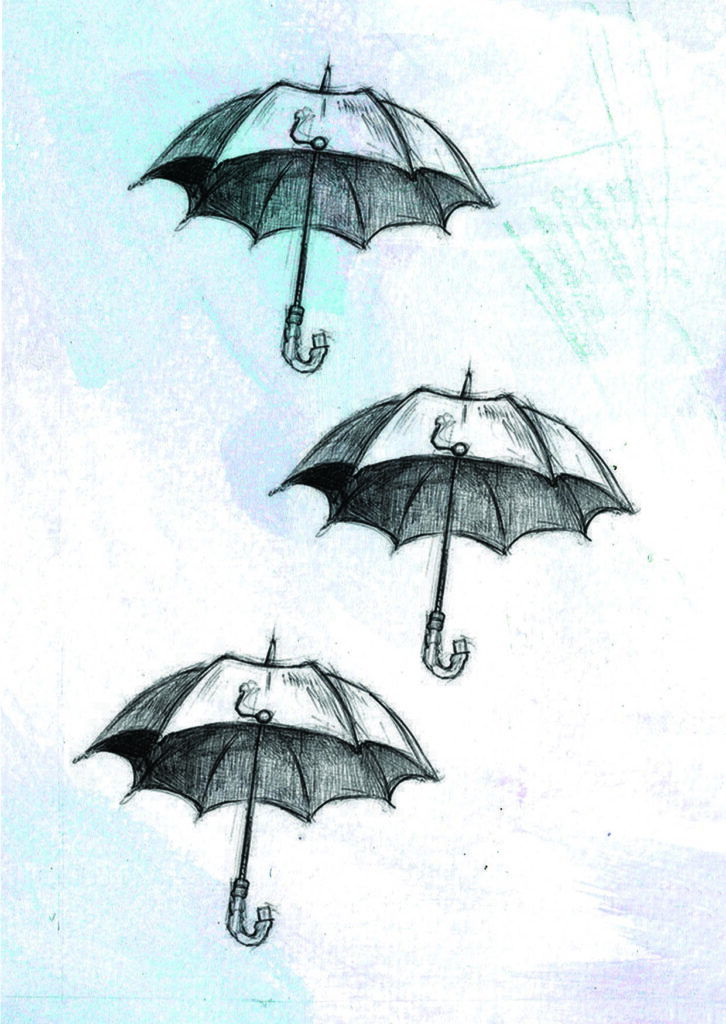
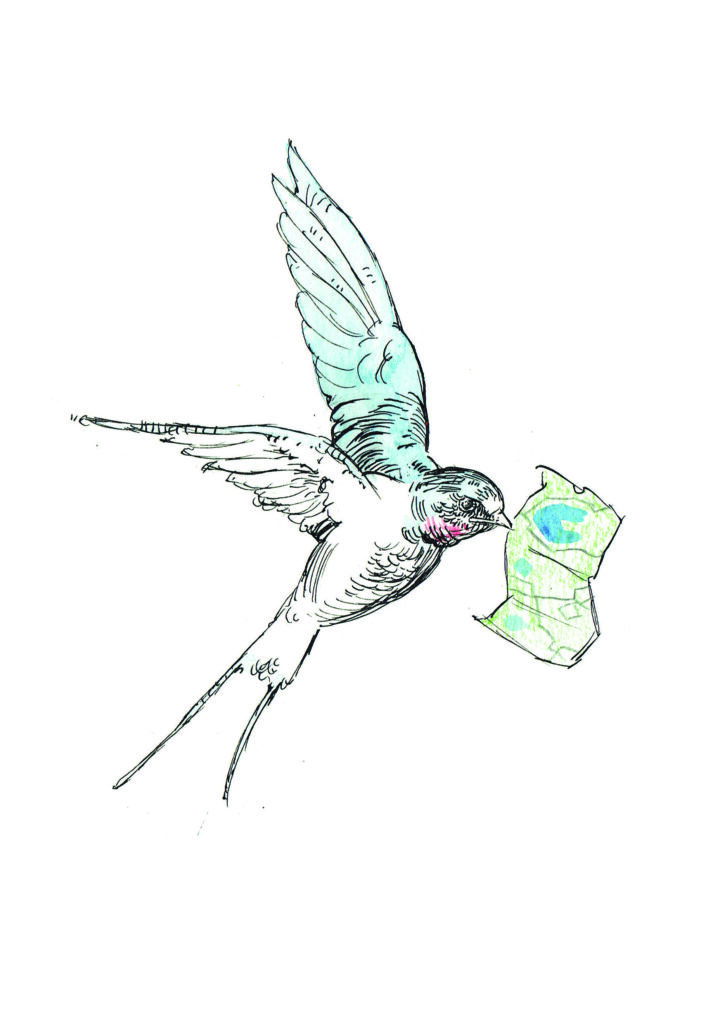
© John Chamberlain
That brings me to my final question, which is, what’s the one piece of advice you’d give to someone thinking of starting a portfolio career, particularly in a creative industry?
Don’t put too much pressure on yourself. For me, it’s always been about gradually building things up. Think of it in the long term, and be very persistent with it. And make sure you have a creative community, because there’ll be people with the same dilemmas as you that could provide a different perspective. People like to help each other, so don’t try and do things on your own. That’s very important.
Inspired by John’s story? So are we! It’s a fantastic example of how networking can happen in the strangest of places. It’s important to maintain those relationships, because you never know who might resurface with an exciting opportunity later on.
If you’d like to meet more inspiring professionals who are forging their own career paths, then join our community and start engaging with our members. You can also check out John’s artwork on his website and via his Instagram account – and make sure to connect on TPC!
Think this sounds like the right path for you? Come along to our monthly Community Welcome Call for new members to find out what a portfolio career could look like and how The Portfolio Collective can help you take those first steps towards professional success – and don’t forget to connect with our community!
